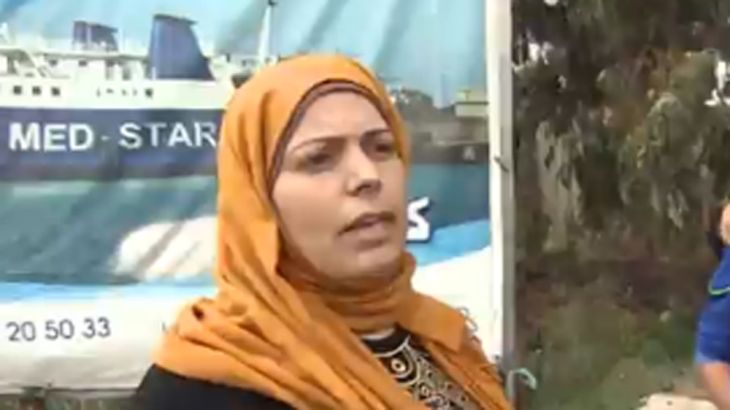Lebanon’s Tripoli: The transit hub for Syrian refugees
Port city has become a major gateway for refugees trying to reach Europe in search of a better future.

Lebanon’s northern port city of Tripoli has become a way out for Syrians and a transit point for those who are trying to reach Europe.
Hundreds of people take ferries every day. The majority are new arrivals from Syria and not the hundreds of thousands of refugees who live in informal camps across the country.
Keep reading
list of 4 itemsWhat happens when activists are branded ‘terrorists’ in the Philippines?
Are settler politics running unchecked in Israel?
Post-1948 order ‘at risk of decimation’ amid war in Gaza, Ukraine: Amnesty
Passengers require proper paperwork to board the boats and those who depart do so legally.
Syrians do not need visas to enter Turkey, but they need transit visas to enter Lebanon after the government imposed new restrictions as a way to prevent more refugees from entering.
Shipping agencies provide that service, and they have hired middlemen or brokers like Khaled al-Masri to prepare the necessary documents with the authorities.
For many of the passengers, Turkey is not their final destination.
“They buy tickets to the ports of Adana or Marsin but from there they find their way to (Turkey’s city) Izmir.
“Then they find smugglers who will take them on boats to Greece and from there to try to get asylum in other European countries,” Masri, who runs a cafe just outside the port, told Al Jazeera.
Ahmed, 18, is one of them.
Ahmed, who is from Damascus but has been in Lebanon for the past few months, did not want to reveal his real name and identity, but told Al Jazeera that he was looking for a future he no longer has at home.
Ahmed’s brother is already in Germany.
“He has been there for six months and I hope to see him soon. I can’t stay here,” he said. “I don’t need to tell you how difficult it is here. We are not welcome, and back home, I can’t find a job. Damascus is safe for now, but we don’t see any future.”

Bad weather conditions
The onset of winter and the bad weather conditions are making it even more dangerous to travel to Greece by sea.
Ahmed says he knows the risks and that is why he may have to wait.
“Europe is not going anywhere. If I don’t decide to go now, I will go later.”
Authorities at the port say that the number of passengers on ferry boats to Turkey has increased.
Since the start of the year, there were more than 100,000 passengers. Ninety percent of them were Syrian and 90 percent of them did not return.
That is why farewells take on a new meaning outside the port. The war has torn families apart. Tears were in almost everyone’s eyes.
People do not just leave because of the violence, but because of the lack of jobs.
Nour, 22, is from the government-controlled city of Homs.
“It is safe now, but I can’t find work and people are facing economic hardship. That is why I am leaving to Turkey.”
Nour would not say if she has plans to try to reach to Europe, but relatives of other passengers were more outspoken about their intentions.
“My sister came from Homs city, and she is going to Turkey. She is hoping to join her son in Austria,” Sanaa said.
We met many other Syrians who didn’t board the boat, and almost all told us about their desire to leave.
“I want a future for my child, but I can’t board the ship. I need a sponsor to renew my residency in Lebanon or else I will face problems with the authorities,” Abu Amir, from Aleppo, said.
The people we met have one-way tickets, but their destination could be the first step in a journey to find a new life.